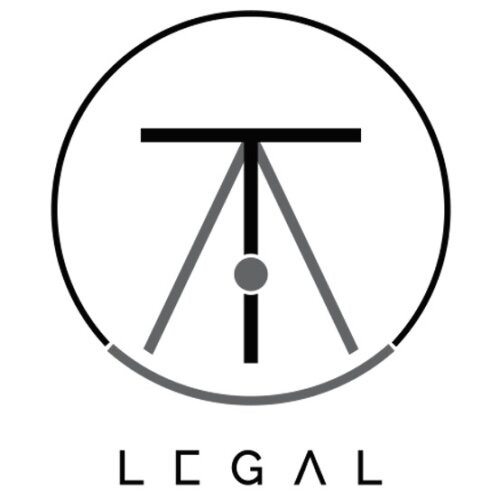Best Real Estate Lawyers in Corfu
Share your needs with us, get contacted by law firms.
Free. Takes 2 min.
Free Guide to Hiring a Real Estate Lawyer
List of the best lawyers in Corfu, Greece
About Real Estate Law in Corfu, Greece
Corfu is one of the most popular islands in Greece, attracting both domestic and international investors eager to own a piece of its scenic beauty. Real estate law in Corfu, as in the rest of Greece, is governed by a combination of national statutes and local regulations. The legal framework covers a wide range of issues, from land ownership and transfer, to building permits, property taxation, and tenancy rights. Whether you are buying a holiday villa, investing in commercial property, or inheriting land, understanding the specific legal processes in Corfu is essential for a smooth and secure transaction.
Why You May Need a Lawyer
Engaging a qualified lawyer when dealing with real estate matters in Corfu is highly recommended, especially for foreign buyers and first-time investors. Some common situations where legal support is invaluable include:
- Purchasing or selling property
- Conducting property title searches to confirm clear ownership
- Understanding and complying with zoning and land use regulations
- Transferring inherited property
- Resolving disputes over boundaries or property rights
- Drafting or reviewing rental and lease agreements
- Obtaining building permits and approvals for renovations
- Navigating requirements as a non-Greek citizen purchasing land or buildings
- Dealing with property tax obligations and compliance
A local real estate lawyer will help you navigate the legal system, avoid common pitfalls, and protect your investment.
Local Laws Overview
In Corfu, real estate transactions are closely regulated to ensure transparency and protect both buyers and sellers. Below are key aspects of local real estate law that you should be aware of:
- All property sales must be executed before a notary public and registered with the local Land Registry or Cadastral Office.
- Properties are subject to both municipal and national taxation, including transfer tax, which is typically paid by the buyer.
- Foreign buyers are permitted to acquire real estate, but certain restrictions and additional documentation may apply, especially for non-EU citizens.
- Zoning laws in Corfu regulate land development, building density, and permissible uses, which can vary based on location (urban, village, coastal, or countryside).
- Heritage sites and protected areas are subject to additional rules regarding construction, renovation, and usage.
- Inheritance and family law affect how property is transferred after the death of an owner, and Greek succession law usually applies to land in Corfu.
- Rental properties must comply with minimum standards, and tenancy agreements should specify duration, rent, and responsibilities.
- Property disputes are generally resolved by negotiation, but may proceed to court if necessary.
Frequently Asked Questions
Can foreigners buy property in Corfu?
Yes, foreigners can buy property in Corfu, although non-EU nationals may have to meet additional requirements and obtain special permits for certain areas.
What taxes apply to property purchases in Corfu?
Buyers must pay a property transfer tax, usually a percentage of the property value, along with notary and registration fees. Annual property taxes may also apply.
Do I need a lawyer to buy or sell property?
It is strongly advised to have a lawyer represent you, as they will perform due diligence, draft contracts, and oversee the legal aspects to protect your interests.
How is property ownership proven in Corfu?
Ownership is established through a deed registered with the Land Registry or Cadastral Office. Title searches are essential to confirm clear and undisputed ownership.
What is the process for buying property in Corfu?
The process typically includes due diligence, signing a preliminary agreement, paying a deposit, executing the sale before a notary, and registering the deed in the Land Registry.
Are there restrictions on building or renovating in Corfu?
Building and renovations are subject to local zoning regulations. Special restrictions may apply in heritage or ecologically sensitive areas, requiring additional permits.
What happens if there is a dispute over property boundaries?
Disputes are first addressed by negotiation or mediation. If unresolved, they may be taken to local courts for a binding decision.
Can I rent out my property to tourists?
Yes, but you must comply with Greek rental laws. Properties rented for short-term stays must often be registered with the tax authorities and may be subject to additional regulations.
How are inherited properties handled in Corfu?
Greek law governs property inheritance, and heirs typically need to follow specific legal procedures to transfer ownership, including paying inheritance taxes and registering the title.
Where can I check if a property has outstanding debts or claims?
A lawyer can conduct a property title search at the local Land Registry or Cadastral Office to identify any mortgages, liens, or unresolved legal claims.
Additional Resources
Several official and non-governmental organizations can provide useful information and support if you are seeking legal advice regarding real estate in Corfu:
- Corfu Land Registry and Cadastral Offices for property registration and title information
- Local Bar Associations for a directory of qualified real estate lawyers
- Greek Ministry of Environment and Energy for information about zoning and building regulations
- Municipality of Corfu for planning permits, local taxes, and municipal property issues
- Greek Ministry of Finance for property taxation and transfer procedures
- Hellenic Cadastre for national registration and property database
Next Steps
If you are considering a real estate transaction or facing a legal issue regarding property in Corfu, these are the recommended steps:
- Clearly define your real estate goals or legal issue.
- Gather all available documentation related to the property, such as deeds, past contracts, or surveys.
- Consult with a qualified real estate lawyer in Corfu to discuss your case and understand your legal options.
- Work with your lawyer to perform due diligence, including title searches and verification of regulatory compliance.
- Follow legal procedures as advised to ensure your transaction or dispute is managed correctly.
- Contact the relevant governmental agencies if you need further information or official documents.
Taking these steps will help ensure your interests are protected and that your real estate affairs in Corfu comply with all applicable laws and regulations.
Lawzana helps you find the best lawyers and law firms in Corfu through a curated and pre-screened list of qualified legal professionals. Our platform offers rankings and detailed profiles of attorneys and law firms, allowing you to compare based on practice areas, including Real Estate, experience, and client feedback.
Each profile includes a description of the firm's areas of practice, client reviews, team members and partners, year of establishment, spoken languages, office locations, contact information, social media presence, and any published articles or resources. Most firms on our platform speak English and are experienced in both local and international legal matters.
Get a quote from top-rated law firms in Corfu, Greece — quickly, securely, and without unnecessary hassle.
Disclaimer:
The information provided on this page is for general informational purposes only and does not constitute legal advice. While we strive to ensure the accuracy and relevance of the content, legal information may change over time, and interpretations of the law can vary. You should always consult with a qualified legal professional for advice specific to your situation.
We disclaim all liability for actions taken or not taken based on the content of this page. If you believe any information is incorrect or outdated, please contact us, and we will review and update it where appropriate.
Browse real estate law firms by service in Corfu, Greece
Corfu, Greece Attorneys in related practice areas.











